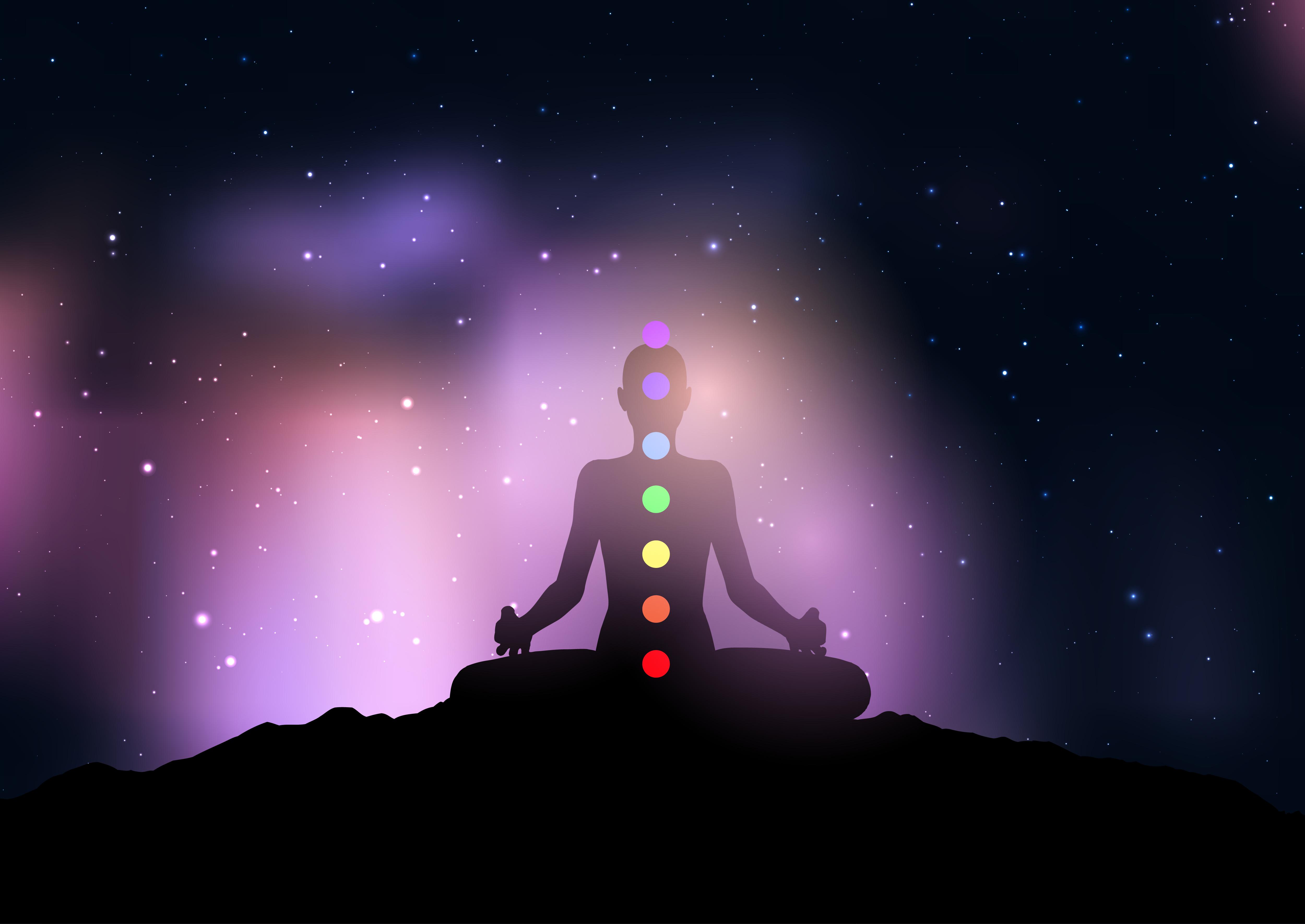
Sleep is a natural state of rest and regeneration characterized by reduced conscious activity and a reduced response to the environment. During sleep, the body undergoes various biological processes that are crucial for recovery, physical health, and mental function. Sleep is essential for physical and mental regeneration and has numerous effects on the body and brain.
The Stages of Sleep:
Sleep is divided into different phases that repeat throughout the night. The most important phases are:
Light Sleep (Non-REM Sleep):
Light sleep begins immediately after falling asleep. During this phase, the body is slowly brought into a state of deep relaxation, and muscle activity decreases. Heart rate and breathing rate slow down, but the body is still able to respond to external stimuli (for example, a loud noise can interrupt sleep).
Deep Sleep (Non-REM Sleep):
In this phase, often referred to as "slow-wave sleep," the body is at its most relaxed. Blood pressure drops, and the immune system strengthens. This phase is especially important for physical recovery and growth (for example, tissue repair and cell regeneration).
Deep sleep is also associated with memory formation and learning, especially the consolidation of long-term memories.
REM (Rapid Eye Movement) Sleep:
REM sleep is the phase during which the body experiences vivid dreams. It is characterized by rapid eye movements and increased brain activity similar to waking activity. REM sleep is important for mental recovery and learning.
During this phase, the brain is particularly active, although the body is in a muscle-paralyzed state to prevent dreams from being physically acted out.
Functions of Sleep:
Sleep serves a variety of functions for the body and mind, including:
Recovery and Regeneration:
Sleep allows the body to recover from the stresses of the day. There is organ recovery, muscle regeneration, and metabolic restoration.
During sleep, hormones are also released that are crucial for growth, tissue repair, and immune health. Growth hormones are produced in greater quantities, especially during deep sleep.
Memory Consolidation and Learning:
During sleep, memories are processed and stored in the brain. Newly learned information and experiences from the day are reinforced and retained in memory. REM sleep, in particular, promotes creative thinking, and the brain works to convert experienced information into long-term memories.
Emotion Regulation and Mental Health:
Sleep plays an important role in emotion regulation. It helps reduce stress, stabilize mood, and promote general mental well-being. Lack of sleep can lead to behavioral changes, mood swings, and a greater susceptibility to mental illness.
Immune Function:
During sleep, the immune system is strengthened. Cytokines, which are important for the immune system, are released in greater quantities to protect the body against infections and diseases.
Why is sleep important?
Sleep is essential for survival and well-being. Chronic sleep deprivation can lead to a number of health problems, including:
Cognitive impairment: Lack of sleep impairs concentration, memory, and creativity. The ability to learn new information is reduced.
Increased risk of disease: Long-term sleep deprivation can increase the risk of several conditions, such as cardiovascular disease, diabetes, obesity, and high blood pressure.
Mental health: Sleep disturbances are closely linked to mental health conditions such as depression, anxiety disorders, and psychosis.
Weakened immune system: Lack of sleep can lead to a weakened immune response, making the body more vulnerable to infections.
Sleep need:
Sleep needs vary depending on age, lifestyle, and individual needs:
Newborns: 14–17 hours of sleep per day.
Infants and children: 9–14 hours of sleep per day.
Adults: Typically 7–9 hours of sleep per night.
Older adults: Sleep needs may decrease somewhat, but 7–8 hours is often still beneficial.
Sleep disorders:
There are many types of sleep disorders that can disrupt normal sleep patterns:
Insomnia (sleeplessness): Difficulty falling asleep or staying asleep.
Sleep apnea: Pauses in breathing during sleep.
that lead to restless sleep and daytime fatigue.
Parasomnias: Unusual sleep behaviors, such as sleepwalking or nightmares.
Restless Legs Syndrome (RLS): An uncontrollable urge to move the legs, especially during rest, which can disrupt sleep.
In many spiritual and esoteric traditions, sleep plays a deeper, symbolic, and transformative role. It is viewed not only as a physiological necessity, but also as a state related to the unconscious, the soul's life, and the connection to the higher realm. In these traditions, sleep can be seen as a kind of bridge between the material world and higher spiritual realms.
Sleep and Spirituality: A Deeper Context
Sleep as a Transitional State:
In many spiritual traditions, sleep is understood as a transition between physical reality and the spiritual world. Similar to death, sleep is a phase in which the body rests, but consciousness is not completely absent. In this state, consciousness can access deeper inner or cosmic realms.
Sleep could be understood as a temporary exit of the self from the material world. This leads to the idea that sleep frees the mind from the limitations of the body and can lead to transcendent experiences.
Dream Interpretation and Visions:
Dreams have important significance in many spiritual and religious traditions. In ancient cultures and also in spiritual practices such as shamanism and mysticism, sleep is considered a gateway to higher levels of consciousness, where the spirit can communicate with other dimensions.
Dreams are often understood as messages from the soul or as visions. They may lead the dreamer to deeper insights about themselves or the universe. In many cultures, such as the ancient Egyptians and Greek mythology, sleep was viewed as a way to seek contact with the gods or spiritual guides.
The State Between Waking and Sleeping (Hypnagogia):
Hypnagogia refers to the state of transition between waking and sleeping, during which people can sometimes experience visionary experiences or even spiritual enlightenment. In many spiritual disciplines, this state is considered a time of inner growth and transformation.
Mystics and meditation practitioners often report profound insights emerging in the border region between sleep and wakefulness. Visions, introspection, or spiritual perceptions may manifest in this state.
Sleep and Enlightenment:
In some spiritual teachings, such as Buddhism, achieving a state of "waking" or enlightenment is compared to a state of "waking sleep." This refers to letting go of attachments and illusions and achieving a holistic awareness that is present in both waking and sleeping states.
Sleep as a state can be interpreted metaphorically as the "wakeful state of the mind," where the light source of knowledge is illuminated, which is connected to the spiritual concepts of enlightenment and awakening.
Sleep as a Symbol of Letting Go:
In many spiritual traditions, sleep is also a symbol of letting go of the ego and trusting in a higher power or the universe. When one sleeps, one relinquishes control over the body's physical processes and surrenders to the natural flow of life. This letting go can be understood as a symbol of spiritual surrender, which is necessary to reach deeper spiritual levels.
In Christian mysticism, there is the idea that divine peace can also be experienced during sleep, as the body rests and the soul is in harmony with divine order.
Sleep and the Path of the Mystic:
Mystical traditions such as Sufism and Hinduism often speak of a state of "sleep of the soul" and a state of "spiritual awakening." The mystic views sleep as a time of purification and balance that can help the seeker find spiritual clarity.
Sufism, for example, describes the "deep sleep of the soul" as a state in which the human being transcends the ego and unites with divine reality. The mystic goes through this phase to experience transcendence and realize the true nature of the self.
Sleep as Preparation for Death:
In many spiritual traditions, sleep is associated with death, with both being seen as transitions from one form of existence to another. For example, in Buddhism and Hinduism, sleep is considered a kind of minor death, in which the mind enters a state of unconsciousness before returning to life.
This idea is also reflected in mysticism, where sleep is seen as preparation for the "great awakening" after death.
In a sense, sleep can be viewed as a test for what might come after physical death.
Sleep and Meditation:
In many spiritual practices, meditation is considered a type of "enlightened sleep." Through deeper meditation practices, the mind can enter a state comparable to sleep, but full awareness remains. This is a form of waking sleep in which the individual remains in a state of inner calm and heightened awareness without losing control of consciousness.
The comparison between sleep and death is a frequently discussed topic in many spiritual, philosophical, and religious traditions. Both states—sleep and death—are understood as transitions that place the body and mind into different states of consciousness. There are many parallels, but also significant differences, especially when considering the philosophical and spiritual perspective.
Similarities between sleep and death:
Transition and transition processes:
In many cultures and spiritual teachings, sleep is viewed as a minor form of death, a transition from a state of wakefulness to a state of "unconsciousness." Much like death is understood as a transition to another life or existence, sleep is interpreted as a transition from the waking world to the inner, unconscious state of the mind.
Sleep, as a transition to the unconscious, can be viewed as a kind of preparation for death, since during sleep, consciousness descends into a deeper level, much as death is understood as a transition to an unknown, no longer consciously perceived life.
Loss of physical consciousness:
During sleep, we lose conscious awareness of the external world and enter a state in which we are no longer able to respond to environmental stimuli. Death is also understood as a disappearance of consciousness, whereby physical life ends and consciousness no longer exists in the world of physical reality.
In both cases, there is a disappearance of habitual consciousness – sleep leads to a temporary loss of physical consciousness, and death leads to a permanent loss of earthly consciousness.
Separation of body and mind:
In some spiritual concepts, sleep is considered a state in which the mind separates from the body to travel to another reality – be it through dreams, visions, or spiritual experiences. This is also a concept present in death, where the mind or spirit is said to leave the body.
Both states involve a separation of body and mind. In sleep, the body is still alive, but the mind's consciousness operates in another realm. At death, the body is permanently left behind.
Recovery and Transformation:
Sleep has a regenerative function for the body and mind. Many spiritual traditions view sleep as a phase of renewal and letting go, much as death is seen as a transition to another existence or state of consciousness.
During sleep, the body regenerates, and the spiritual life is freed from the stresses of the day. At death, the body is finally freed from earthly burdens and strains, and the soul is transferred to a new state of existence—a transformation that, in a spiritual context, is often understood as a process of redemption or elevation.
Differences between sleep and death:
Voluntariness and return:
Sleep is a voluntary process that we experience every day. It is a state to which we can always return to recover and restore our consciousness. In death, however, there is no return—it is the end of physical life, from which no return is possible.
While sleep is a temporary state that ends in the next waking moment, death is a final transition from earthly life, understood only in most spiritual traditions as part of a larger, cyclical process of life and death (e.g., reincarnation or resurrection).
Physical Existence:
During sleep, the body remains alive and functional; it merely becomes inactive, whereas death ends physical life. At death, the body's circulation ceases, and the body decays.
Sleep allows the body to remain in a living state, albeit less active, whereas at death, the body completely ceases its physical functions.
Mental Activity:
Dreams and the unconscious are phenomena that occur in the body during sleep, even when the person is "resting." The body is alive, and the mind remains active, functioning in dreams or in a deeper state of consciousness. At death, however, the mind becomes completely separated from the physical world.
In spiritual teachings, death is viewed as a transition to another state of consciousness, in which the spirit may continue to exist or pass into another dimension, independent of the body.
Experiences and Perceptions:
Sleep is usually associated with a state of nihilism.
ht knowledge about the reality of waking, in which we find ourselves in an inner world of dreams or the unconscious. Death, on the other hand, is seen as the end of perception in the physical sense. During sleep, there is the possibility of having dreams, which are perceived as conscious processes, while death represents the final cessation of this perception.
Spiritual Perspective:
In many religious and spiritual traditions, death is understood as a final transitional phase that not only ends physical life but also transitions spiritual life into another form. However, sleep is often understood as a preparatory state or a state that helps purify the mind and regenerate the body. In death, there is no "physical waking process" as in sleep, but rather a transition to another form of existence.
Sleep and Death in the Context of Religions and Philosophy:
Buddhism:
In Buddhism, death is viewed as part of the cycle of birth, death, and rebirth (samsara), much as sleep is a temporary experience of "non-perception." Death is the final transition, and the goal of life is to attain enlightenment to overcome the cycle of suffering and rebirth.
The practice of meditation can be understood as a preparation for death, as it helps to calm the mind and detach oneself from worldly attachments, as is also required during the transition to death.
Christianity:
In Christianity, death is viewed as the end of earthly life, which represents the beginning of an eternal afterlife in another dimension (heaven, hell, or purgatory). Sleep is seen as a natural part of life in the Christian context, while death represents the final transition to eternal life or eternal damnation.
Greek Philosophy:
Greek philosophy, and especially the philosophy of Plato, sees death as the liberation of the soul from the body, similar to sleep as the liberation of mental perception from physical distractions. For Plato, death was a transition into the true world of ideas and pure knowledge, much as sleep represents a retreat into a less material world.
Summary:
The comparison between sleep and death reveals many parallel concepts, particularly in spiritual and philosophical traditions. Both states involve the transition of consciousness into another reality, but death is a final state, while sleep is a temporary and regenerative experience. However, both are viewed as profound experiences that connect humans to higher spiritual realms and are understood as transitional phases that, in many traditions, enable inner growth and a connection to the divine.



